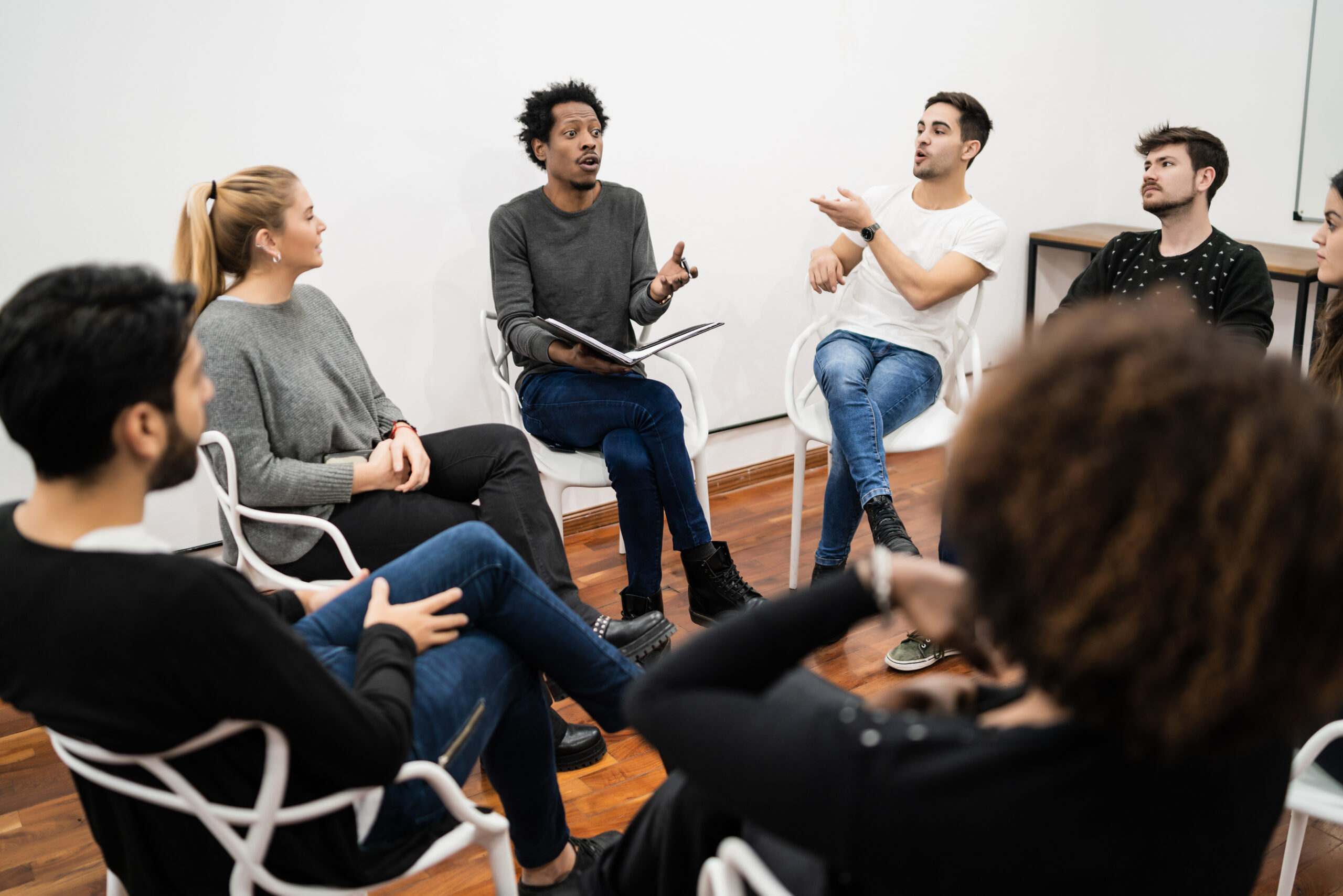by immusic | Nov 29, 2022
Category
rhythmic
Age
12+
Number of participants
5-12
Duration
approx. 10 min.
Working method
group work
Musical abilities of the trainers
12 3 4 5 6
Competences
- memory
- collaboration
- attention
- concentration
- rhythm recognition
Give me Rhythms!
Playful rhythmic exercise, which is a simple musical version
of the well-known word game
AIM
The goal of the game is for the participants to acquire, in a playful way, unnoticed, musical basics and competencies that can serve as the basis of their interest in the future. And it has an extremely strong team-building effect, encouraging cooperation and mutual attention.
Description
Participants sit in a circle and choose a leader who claps a rhythmic formula and passes it to the person sitting next to him/ her.
Everybody in the circle claps it individually. After the rhythm gets back to the leader, he/she will find out and start a new rhythmic formula and send it around.
This way the game becomes a two-part rhythm activity.
The leader can be different in every turn.
The two rhythm patterns can be played in different ways, for example with clapping and flicking.
comments for facilitators
Adapting to the abilities of the group and the opportunities provided by the venue, you can also play with simpler melodies, the main thing is that only the next person in line hears the melody.
by immusic | Nov 28, 2022
Category
vocal
rhythmic
instrumental
Age
12+
Number of participants
5-20
Duration
approx. 20 min.
Working method
group work
Musical abilities of the trainers
12 3 4 5 6
EQUIPMENT
AND INSTRUMENTS
- optional: any type
of instrument
Competences
- improvisation
- creativity
- collaboration
- attention
- cooperation
- concentration
- sense of rhythm
Bead String
Short funny game to develop musical creativity and memory.
AIM
The goal of the game is to develop musical creativity, to promote thinking that always presents new and variation possibilities during the game. Musical memory improvement affects learning abilities in all other areas as well.
Description
The participants stand or sit in a circle. The facilitator provides instructions on the game and which set of sounds can be used during the play.
First participant sings or play a sound.
After that the next participant repeats the sound and adds one.
The next repeats the 2 sounds and adds another sound.
And it goes round the circle.
The goal is to make the longest line of sounds, longest “string of bead.”
Level up!
If the group’s level of knowledge and experience allows it, the game can also run to the point where a common piece can be created.
COMMENTS FOR FACILITATORS
During the activities be care of the steady beat.
by immusic | Nov 28, 2022
Category
vocal
instrumental
Age
8+
Number of participants
2-15
Duration
approx. 20 min.
Working method
- group work
- it can be played in pairt
Musical abilities of the trainers
12 3 4 5 6
Equipment and instruments
- optional: any type of instrument
Competences
- improvisation
- creativity
- memory
- collaboration
- attention
- cooperation
- concentration
Playback
A short and simple game based on creativity and improvisation.
AIM
During the game, the development of improvisational skills and creativity is the most important goal, while the musical memory also improves a lot, and paying attention to each other greatly affects social skills.
Description
The participants stand or sit in a circle. The facilitator provides instructions on the game and which set of sounds can be used during the play.
First participant sings or plays a set of sounds. First of all, it is worth choosing a simple melody that varies 2-3 notes.
After that the next participant repeats the exact same set of sounds. If this participant sang or played correctly then chooses who will go next (cannot choose the one sang/played before) and improvises a set of sounds, starting with the same note as the last set of sound ended with.
The next participant repeats the same as the player before.
During the game if somebody cannot repeat the set of sounds goes out of the circle as being out of the game. The game ends when only one participant remains in the circle.




Recent Comments